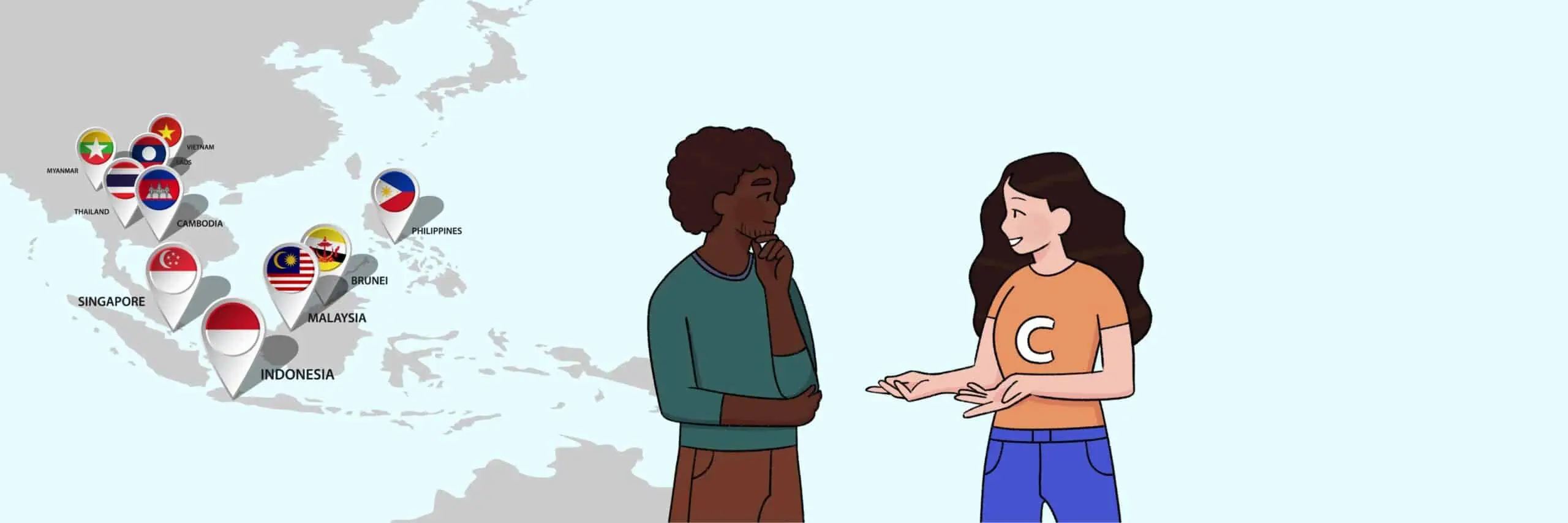Contractors with clients in Asia will have to deal with several work and finance regulations to remain in compliance as expat workers. One of those is that of tax residency, and the implications it can have on tax filing and payment requirements. Tax residency is not something that can be easily avoided if you are working long-term in a single country.
Remote ‘nomad’ contractors can just change countries each month, and some will work online using tourist visas. Their rationale is that unless the revenue is being paid into the current location, no one will be the wiser. This may be true, but frequent visitors may be asked how they will support themselves while in-country. This brings a difficult choice of misleading immigration authorities or declaring your income activities.
On-site contractors have less latitude, as they will often need a work permit to work with local companies. A work permit automatically infers earned income inside the country. This is where tax residency comes in, as the host country has the right to tax you on those earnings as well as worldwide income in some cases.
What is tax residency?
Tax residency is a financial status that is applied to foreign nationals that work in a country for a certain period. If you meet the time criteria, then you will be taxed just like a citizen of the country, with some exceptions. The most common period used is 183 days in 12 months, and after that, you have deemed a tax resident.
The 12-month period is usually ‘rolling’ which means it is not dependent on the calendar year and begins on the entry date. The period is also cumulative, so a quick visit home will not reset the clock just because you crossed the border. The time away is usually just not counted.
Non-Residents
If you stay less than the tax residency period, you are taxed as a non-resident. That amounts to paying tax only on earnings inside the host country. Foreign non-residents may also be offered alternative flat-tax rates to keep things simple.
Tax Residents
Once you cross the tax residency time threshold, you will often need to pay tax on earnings outside the country as well, for the affected tax year. At first, this looks like unfair double taxation assuming you are still liable for tax in the other countries or at home. But there are ways to offset this result with some research and planning around tax treaties. Some countries will only tax you if the earnings are received locally.
What are tax treaties and how do they work?
Tax treaties are in place between two countries to give equitable treatment to expat citizens who may be working and earning income. Essentially, they prevent double taxation when an expat meets tax residency requirements, but still has a tax liability at home. Without tax treaties, there would be a chilling effect on bilateral trade and professional exchange that would be negative for both countries.
Tax treaties are an enormous benefit for expat contractors that become tax residents when working abroad. Not all countries have tax treaties, and they may only select certain countries to enter an agreement. For example, if you are a US or UK citizen, your country has tax treaties with almost any developed country in Asia.
The exception to this is Singapore for US citizens, where there is no tax treaty. Here, US contractors risk paying both double income tax and social security taxes (The Foreign Earned Income Exclusion in the US does offer some relief). In contrast, there is a tax treaty between the UK and Singapore to prevent double taxation for citizens. This applies to both countries.
How is tax residency different from legal residency?
Unfortunately, if you meet the criteria for tax residency that does not confer any type of legal residency. In other words, you have the same tax liability as a legal resident, without other rights to stay or receive benefits. This does not mean that you can’t follow the process toward legal residency if that is your goal, but tax payment does not confer any immigration status or legal rights.
Examples of specific tax residency rules in Asia
Malaysia
Anyone who stays in Malaysia more than 182 days in a year will be deemed a tax resident. However, income that is created outside of Malaysia is tax-exempt for tax residents, and until recently that income could be received in Malaysia tax-free. There is new legislation that puts that exemption in doubt.
Thailand
In Thailand, tax residency accrues to anyone staying more than 180 days in a calendar year (not a rolling year). Worldwide income is taxed in Thailand for residents, but only if that income is paid into Thailand.
Japan
Japan has three tiers of tax residency:
- Non-Resident – continuous stay in Japan of less than one year. Only taxed on Japan-sourced income, with no deductions or exemptions.
- Non-Permanent Resident – continuous stay of more than one year, and five years or less in the last 10 years. Taxed on Japan-sourced income, and foreign-sourced income but only if paid into Japan.
- Permanent Resident – Living in Japan for more than five years in the last 10 years. Taxed on all income regardless of source or where it is paid.
Singapore
In Singapore, stays of less than 183 days in a year will result in non-resident status. In this case, a 15% flat tax will be applied to income. Tax residency will accrue if a stay is either more than 183 days in a year or more than 183 continuous days in two years. It could also apply if it is more than 183 continuous days in three years. Tax residents pay a progressive tax rate of 0-22%.
South Korea
South Korea uses the simple 183-day rule to determine tax residency. Non-residents can elect a 19% flat tax on income, and residents will pay progressive rates on worldwide income.
How can Contractor Taxation help with tax residency in Asia?
If you don’t want to take any chances navigating the tax residency rules in Asia, Contractor Taxation can be your valuable partner. We have a network of umbrella companies across Asia with local experts who know all of the residency criteria and tax rates. This ensures that you will remain in compliance, and pay the correct tax rates under local criteria.
The umbrella company can also assist with handling client payments, withholding taxes and negotiating any client disputes. Please contact us if you are interested in using an umbrella company for all of your contracting needs.





